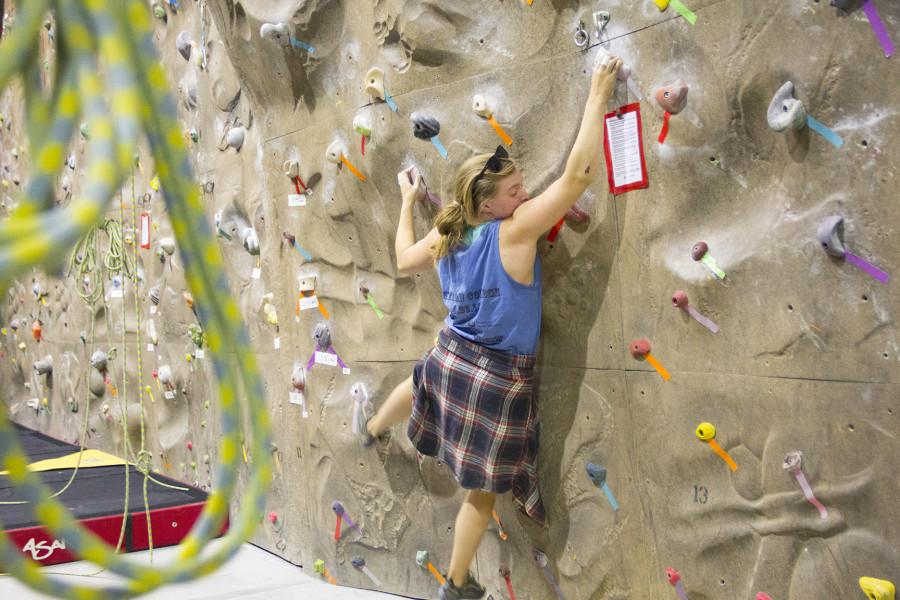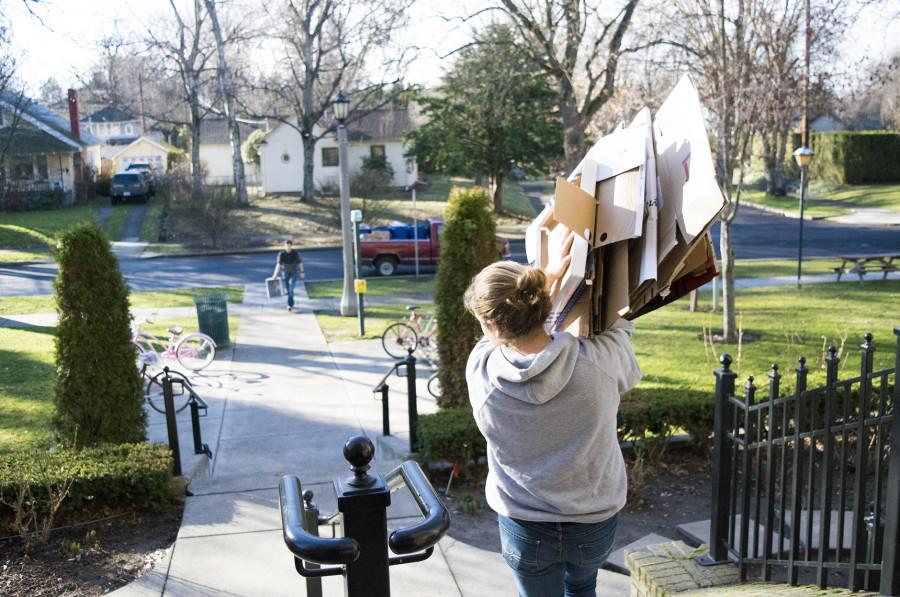When junior Jamie Edison first came to Whitman, he had a certain preconceived idea of how college relationships worked.
Both his parents had met and hit it off in college, and so did his grandparents––at Whitman, no less. There seemed to be a big difference between his expectations of Whitman and reality.
“All of the married figures in my life met in college,” said Edison. “I guess I see the stereotypical Whitman student not finding a marriage partner at Whitman, but going on and getting married after school.”
Whitman might not feel like a school where finding a soulmate is as common as the urban legends would have students believe. Usually Whitman students see the neighboring Walla Walla University as a school where students more commonly get married before graduating.
Walla Walla University is the other private hub of tertiary education, located just a few miles away in College Place with an enrollment very close to Whitman’s, coming at 1,602 students.
The biggest distinction that is often drawn is that Walla Walla University is tied to Seventh Day Adventist religion in its roots, student body and policies. The most notorious of these is the drinking policy.
“At the University, we actually have a policy on drinking––we sign a piece of paper that says that we will not drink alcohol, and if anyone is caught drinking, that is grounds for getting kicked out,” said Alyssa Seibold, a Walla Walla University junior.
Seibold notes that while spirituality guides the social scene at the University, not everyone fits the quiet student stereotype that Whitman students might assume.
“There are people that party, and people that have chosen not to,” she said.
As for marriage, Seibold has no illusions that for many students, she jokes, Walla Walla University’s initials (WWU) can stand for “Western Wedding University.”
“A lot of people come here and they try to get married. Because of the community that we are in, I feel like people can find someone they are compatible with because we all come from similar backgrounds,” she said.
Walla Walla Academy is one of these backgrounds, as College Place’s private Seventh Day Adventist Church. Community member Kaitlynn Vickroy went there for high school and graduated in 2006. Though she herself did not, many people from her high school matriculated to Walla Walla University.
“Because it’s so close, if you went through the private school, a lot of your friends ended up going there,” she said. “A good 50 percent end up going to the University; it’s an easy transition.”
According to Vickroy, the religion’s and community’s emphasis on group social activity provide a great chance for people to meet and get to know each other before making things more serious.
“We’ll have vespers where we’ll meet on Friday nights. We’ll come together and you sing and you worship and you have a little talk and then you break off, and sometimes you’ll go over to somebody’s house for game night,” she said. “As far as relationships go, it’s always encouraged through being friends first, and then interest sparks from there.”
Despite this reputation, many Walla Walla University students might start their relationships in college, but will wait until after graduating to actually get married.
“This isn’t back in the day Walla Walla University. Nowadays, people are focusing on their careers first and foremost and then getting married after they’ve graduated and found a stable job,” said Seibold.
While it might be easy to lump all Walla Walla University students or Seventh Day Adventists into one category, even on the topic of marriage people differ. Even though both of Vickroy’s sisters married when they were 20 years old, Vickroy has not followed that same path herself.
“There is no time limit for when you have to get married. You’re always encouraged to wait,” she said. “But when you get married, you get married, for better or for worse.”
While Edison might see the Whitman dating scene as bleak, Vickroy believes that the lack of dating scene isn’t necessarily a Whitman affliction but something more problematic with our generation.
“I feel like that sort of behavior in our generation is absent,” she said. “If you just go on a casual date, like going to coffee, it’s not a date. It’s hanging out.”
While the dating scene might seem absent, that doesn’t mean people aren’t tying the knot at Whitman. There is a handful of students who are married or are engaged to be married among Whitman’s ranks.

Junior Alecia Kaer is slated to marry her fiancé Matt Lindsay this coming spring break in their home state of Alaska. When they hit it off, marriage was always in the question.
“We basically decided that if getting married wasn’t going to be an option, we wouldn’t be dating,” said Kaer. “We decided to make love a choice, not just a feeling.”
Lindsay added that though it might sound strange, it made the commitment and connection stronger. Both had had enough with relationships where people’s hearts weren’t completely there, so they took this relationship quite seriously.
“You’re pretty much like, ‘will you marry me, but in the future.’ But just by doing it that way, it definitely just helps keep things going in that direction,” said Lindsay.

When asked about how people react to her upcoming wedding, Kaer isn’t all that ostentatious about the whole thing.
“I don’t usually go out and straight up tell people; I usually wait to see if they see my ring on my hand,” said Kaer. “This doesn’t happen very often, because people wear rings on their ring finger all the time.”
There is a little bit of disbelief when they realize that Kaer is in fact getting married.
“When they do find out, they are like, ‘What? Really?’ and then their first response is always ‘Is it a Whitman student?'”
Lindsay is not a Whitman student; he is on a fire crew in Alaska and doesn’t get much time off. In explaining all of this, Kaer doesn’t feel so much like she is judged for her unusual decision, but anxiety does set in.
“I don’t think I feel judged, but I do feel self-conscious,” she said. “That feeling of ‘if I can’t figure out how to tackle my homework, how can I figure out how to get married?'”
Even though each school has its own norm, when it comes to finding a soulmate, it seems to be an individual-by-individual incidence. Whether lovers meet at church, in class or in the workplace years later, when it happens, it just feels right.
“When I met Matt, I just kind of knew,” said Kaer.















